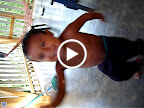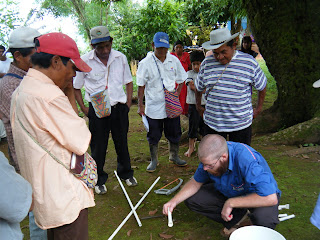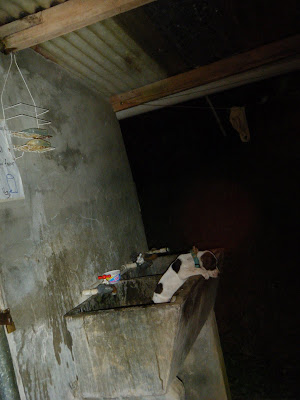











 Papito, the newest and most enthusiastic member of Cati´s Coloring Club.
Papito, the newest and most enthusiastic member of Cati´s Coloring Club. When was the last time you went to visit someone with only your underwear on, or better yet, nothing on at all? I told him if he expects to sit on my stools, he will need to come in some undies next time. He hasn´t forgotten!
When was the last time you went to visit someone with only your underwear on, or better yet, nothing on at all? I told him if he expects to sit on my stools, he will need to come in some undies next time. He hasn´t forgotten!
| From Panama Pura Vida |
 |
| From Panama Pura Vida |
 |
| From Panama Pura Vida |
 |
| From Panama Pura Vida |
 |
| Panama Pura Vida |
 |
| From Panama Pura Vida |

 |
| From Panama Pura Vida |
 |
| From Panama Pura Vida |




In my free time, I teach my neighbors songs. Or rather just song. Now that they have mastered ¨Are you sleeping?¨others, like ¨Twinkle Twinkle¨ just seem downright impossible.
There is no way to be sure, but I think my neighbors are cuter than yours.
International Book Project
1440 Delaware Avenue
Lexington, KY 40505.
You may also donate online via credit card by going to www.internationalbookproject.










 That is a sloth. It must have fallen from up high, landed between the two trees and gotten good and stuck. It was not moving and appeared to be dead. But my cohorts and I decided we had to be sure, so they got a couple of large sticks and started poking.
That is a sloth. It must have fallen from up high, landed between the two trees and gotten good and stuck. It was not moving and appeared to be dead. But my cohorts and I decided we had to be sure, so they got a couple of large sticks and started poking.



 I never had a puppy before, so I was unsure about what it would be like, but I´m always delighted by the ways he is like a real baby. He has sweet puppy breath and does not react well to bathtime:
I never had a puppy before, so I was unsure about what it would be like, but I´m always delighted by the ways he is like a real baby. He has sweet puppy breath and does not react well to bathtime:

I fell hard, and I fell fast. His complete name is Ambassador Walter Fitzgerald Caballero-Lopez Santos Santos. Jim named him Droopy, but I thought a name like that could have life-long effects on his self-esteem. His last names came from my first host family and neighbors. The name Walter was suggested by my birthmother and also Paul. Fitzgerald is a shout-out to the adulterous, back-pain-plagued founder of Peace Corps, JFK.
He is an Ambassador because, well, why not givea dog a title? It might keep the kids from playing too roughly with him. El es un ambajador! Cuidado! Since Walter arrived on Sunday, he has been coming to pasear with me, at the quebrada to wash clothes, and from house to house helping me accomplish my daily tasks. We are working on the whole walking-on-your-own thing. He prefers to be carried like a baby and rest his head on my shoulder. He is still a wee thing (one month!), but it can´t go on forever. That isn´t very dignified behavior for an Ambassador. You have legs, Walter. Use them.
We are living a very happy life together. He falls asleep on my tummy while I lie in my hammock at night, and he even poops outside! Although we are encountering some small problems. One is that all of the deathly thin dogs that never get fed can fit through my porch fence and steal his food. And twice in the a night a bully has come by and tried to hurt Wally Fitz. His screams broke out into the night and awakened me from my slumber. My neighbor saw this happen both times and is also feeling fiercely protective of our poor defenseless hero. He is also a little bit of a chewer, and a mouther, which are common puppy problems but I am determined to be a rigid trainer. Teething is no excuse to behave like a common street dog, Señor Caballero-Lopez Santos Santos. This lady´s ideas about how to keep him from biting are interesting. Although if I start yelping everytime he mouths me, I think the Ngobes will finally decide that Cati is just completely off her rocker. He responds to my reprimands, and can be redirected to playing with his toy I made from a handkerchief.
Doesn´t he look thrilled? Anyway, he is usually only awake for fifteen minutes before he needs another break:

So that´s the story. Stay tuned. (I promise I will endeavor to keep the annoying dog-doting to a minimum. BUT DID YOU SEE HIS FACE?!)
